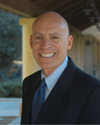Question A:
Even if the
third round of quantitative easing that the Fed recently
announced increases real GDP growth over the
next two years, the increase will be inconsequential.
Responses
Responses weighted by each expert's confidence
Question B:
Even if the third round of quantitative easing that the Fed recently announced increases annual consumer price inflation over the next five years, the increase will be inconsequential.
Responses
Responses weighted by each expert's confidence
Question C:
Even if inflationary
pressures rise substantially as a result of quantitative easing and low
interest rates, the Federal Reserve has ample tools to rein inflation back in
if it chooses to do so.
Responses
Responses weighted by each expert's confidence
Question A Participant Responses
| Participant | University | Vote | Confidence | Bio/Vote History |
|---|---|---|---|---|
 Daron Acemoglu |
MIT | Bio/Vote History | ||
|
|
||||
    Alberto Alesina |
Harvard | Did Not Answer | Bio/Vote History | |
|
|
||||
    Joseph Altonji |
Yale | Bio/Vote History | ||
|
|
||||
    Alan Auerbach |
Berkeley | Bio/Vote History | ||
|
|
||||
    David Autor |
MIT | Bio/Vote History | ||
|
|
||||
    Katherine Baicker |
University of Chicago | Bio/Vote History | ||
|
|
||||
    Marianne Bertrand |
Chicago | Bio/Vote History | ||
|
|
||||
    Raj Chetty |
Harvard | Bio/Vote History | ||
|
|
||||
    Judith Chevalier |
Yale | Did Not Answer | Bio/Vote History | |
|
|
||||
    Janet Currie |
Princeton | Bio/Vote History | ||
|
|
||||
    David Cutler |
Harvard | Bio/Vote History | ||
|
|
||||
    Angus Deaton |
Princeton | Bio/Vote History | ||
|
What does inconsequential mean?
|
||||
    Darrell Duffie |
Stanford | Bio/Vote History | ||
|
The impact might be small, but "inconsequential" , to me, means "of negligible value." The Fed is doing this for a reason, not for fun.
|
||||
    Aaron Edlin |
Berkeley | Bio/Vote History | ||
|
|
||||
    Barry Eichengreen |
Berkeley | Bio/Vote History | ||
|
Purchases are open ended so consequences will depend on magnitude which remains uncertain. And does your question encompas forward guidance?
|
||||
    Ray Fair |
Yale | Bio/Vote History | ||
|
|
||||
    Pinelopi Goldberg |
Yale | Bio/Vote History | ||
|
|
||||
    Claudia Goldin |
Harvard | Bio/Vote History | ||
|
|
||||
    Austan Goolsbee |
Chicago | Bio/Vote History | ||
|
|
||||
    Michael Greenstone |
University of Chicago | Bio/Vote History | ||
|
|
||||
|
Robert Hall |
Stanford | Bio/Vote History | ||
|
Current activity depends mainly on shorter rates, so lowering long rates has little effect. See my 1977 Brookings paper.
-see background information here |
||||
    Bengt Holmström |
MIT | Bio/Vote History | ||
|
|
||||
    Caroline Hoxby |
Stanford | Bio/Vote History | ||
|
|
||||
    Kenneth Judd |
Stanford | Bio/Vote History | ||
|
|
||||
    Anil Kashyap |
Chicago Booth | Bio/Vote History | ||
|
Too many other negative pressures around the world (europe, fiscal cliff, china) for the Fed's policy to make much difference
|
||||
    Pete Klenow |
Stanford | Bio/Vote History | ||
    Edward Lazear |
Stanford | Bio/Vote History | ||
|
|
||||
    Jonathan Levin |
Stanford | Did Not Answer | Bio/Vote History | |
|
|
||||
    Eric Maskin |
Harvard | Did Not Answer | Bio/Vote History | |
|
|
||||
    William Nordhaus |
Yale | Bio/Vote History | ||
|
Likely to be small, but consequential if it has net job creation.
|
||||
    Maurice Obstfeld |
Berkeley | Bio/Vote History | ||
|
|
||||
    Emmanuel Saez |
Berkeley | Bio/Vote History | ||
|
|
||||
    José Scheinkman |
Columbia University | Did Not Answer | Bio/Vote History | |
|
|
||||
    Richard Schmalensee |
MIT | Bio/Vote History | ||
|
|
||||
    Hyun Song Shin |
Princeton | Bio/Vote History | ||
|
|
||||
    Nancy Stokey |
University of Chicago | Bio/Vote History | ||
|
|
||||
    Richard Thaler |
Chicago Booth | Bio/Vote History | ||
|
don't know and will never know. Economy is likely to start growing at some point and no one will know what caused it.
|
||||
    Christopher Udry |
Northwestern | Bio/Vote History | ||
|
|
||||
    Luigi Zingales |
Chicago Booth | Bio/Vote History | ||
|
|
||||
Question B Participant Responses
| Participant | University | Vote | Confidence | Bio/Vote History |
|---|---|---|---|---|
    Daron Acemoglu |
MIT | Bio/Vote History | ||
|
|
||||
    Alberto Alesina |
Harvard | Did Not Answer | Bio/Vote History | |
|
|
||||
    Joseph Altonji |
Yale | Bio/Vote History | ||
|
My guess is QE3 will have a small positive effect on GDP, but I am not well informed on this issue.
|
||||
    Alan Auerbach |
Berkeley | Bio/Vote History | ||
|
|
||||
    David Autor |
MIT | Bio/Vote History | ||
|
|
||||
    Katherine Baicker |
University of Chicago | Bio/Vote History | ||
|
|
||||
    Marianne Bertrand |
Chicago | Bio/Vote History | ||
|
|
||||
    Raj Chetty |
Harvard | Bio/Vote History | ||
|
|
||||
    Judith Chevalier |
Yale | Did Not Answer | Bio/Vote History | |
|
|
||||
    Janet Currie |
Princeton | Bio/Vote History | ||
|
|
||||
    David Cutler |
Harvard | Bio/Vote History | ||
|
|
||||
    Angus Deaton |
Princeton | Bio/Vote History | ||
|
|
||||
    Darrell Duffie |
Stanford | Bio/Vote History | ||
|
The path of Inflation could be raised moderately over 5 years by this QE. The Fed has said as much, and probably wants a bit more inflation.
|
||||
    Aaron Edlin |
Berkeley | Bio/Vote History | ||
|
|
||||
    Barry Eichengreen |
Berkeley | Bio/Vote History | ||
|
Increase is unlikely to exceed 1-2 percentage points per annum. Is this inconsequel? I'm not sure how to interpret the word in this context.
|
||||
    Ray Fair |
Yale | Bio/Vote History | ||
|
|
||||
    Pinelopi Goldberg |
Yale | Bio/Vote History | ||
|
|
||||
    Claudia Goldin |
Harvard | Bio/Vote History | ||
|
|
||||
    Austan Goolsbee |
Chicago | Bio/Vote History | ||
|
|
||||
    Michael Greenstone |
University of Chicago | Bio/Vote History | ||
|
|
||||
|
Robert Hall |
Stanford | Bio/Vote History | ||
|
|
||||
    Bengt Holmström |
MIT | Bio/Vote History | ||
|
|
||||
    Caroline Hoxby |
Stanford | Bio/Vote History | ||
|
|
||||
    Kenneth Judd |
Stanford | Bio/Vote History | ||
|
|
||||
    Anil Kashyap |
Chicago Booth | Bio/Vote History | ||
|
Only way this is incorrect is if the Fed ignores lots of warnings. Given current FOMC membership that risk is small.
|
||||
    Pete Klenow |
Stanford | Bio/Vote History | ||
    Edward Lazear |
Stanford | Bio/Vote History | ||
|
|
||||
    Jonathan Levin |
Stanford | Did Not Answer | Bio/Vote History | |
|
|
||||
    Eric Maskin |
Harvard | Did Not Answer | Bio/Vote History | |
|
|
||||
    William Nordhaus |
Yale | Bio/Vote History | ||
|
Again, inconsequential is poor word choice. Surely less than 50 basis points per year.
|
||||
    Maurice Obstfeld |
Berkeley | Bio/Vote History | ||
|
Depends what you mean by 'consequential.' I doubt there is a chance of inflation as high as 5% before the Fed tightens.
|
||||
    Emmanuel Saez |
Berkeley | Bio/Vote History | ||
|
|
||||
    José Scheinkman |
Columbia University | Did Not Answer | Bio/Vote History | |
|
|
||||
    Richard Schmalensee |
MIT | Bio/Vote History | ||
|
|
||||
    Hyun Song Shin |
Princeton | Bio/Vote History | ||
|
|
||||
    Nancy Stokey |
University of Chicago | Bio/Vote History | ||
|
|
||||
    Richard Thaler |
Chicago Booth | Bio/Vote History | ||
|
Inflation risk still seems low.
|
||||
    Christopher Udry |
Northwestern | Bio/Vote History | ||
|
|
||||
    Luigi Zingales |
Chicago Booth | Bio/Vote History | ||
|
|
||||
Question C Participant Responses
| Participant | University | Vote | Confidence | Bio/Vote History |
|---|---|---|---|---|
    Daron Acemoglu |
MIT | Bio/Vote History | ||
|
|
||||
    Alberto Alesina |
Harvard | Did Not Answer | Bio/Vote History | |
|
|
||||
    Joseph Altonji |
Yale | Bio/Vote History | ||
|
|
||||
    Alan Auerbach |
Berkeley | Bio/Vote History | ||
|
|
||||
    David Autor |
MIT | Bio/Vote History | ||
|
|
||||
    Katherine Baicker |
University of Chicago | Bio/Vote History | ||
|
|
||||
    Marianne Bertrand |
Chicago | Bio/Vote History | ||
|
|
||||
    Raj Chetty |
Harvard | Bio/Vote History | ||
|
|
||||
    Judith Chevalier |
Yale | Did Not Answer | Bio/Vote History | |
|
|
||||
    Janet Currie |
Princeton | Bio/Vote History | ||
|
|
||||
    David Cutler |
Harvard | Bio/Vote History | ||
|
|
||||
    Angus Deaton |
Princeton | Bio/Vote History | ||
|
|
||||
    Darrell Duffie |
Stanford | Bio/Vote History | ||
|
Yes, it clearly has the tools, but will it use them quickly and aggressively, especially given the short-run cost in jobs? We may find out.
|
||||
    Aaron Edlin |
Berkeley | Bio/Vote History | ||
|
|
||||
    Barry Eichengreen |
Berkeley | Bio/Vote History | ||
|
|
||||
    Ray Fair |
Yale | Bio/Vote History | ||
|
|
||||
    Pinelopi Goldberg |
Yale | Bio/Vote History | ||
|
|
||||
    Claudia Goldin |
Harvard | Bio/Vote History | ||
|
|
||||
    Austan Goolsbee |
Chicago | Bio/Vote History | ||
|
|
||||
    Michael Greenstone |
University of Chicago | Bio/Vote History | ||
|
|
||||
|
Robert Hall |
Stanford | Bio/Vote History | ||
|
There's no upper bound on the Fed's contractionary power--it can sell bonds and raise the interest rate on reserves, the latter sans limit.
|
||||
    Bengt Holmström |
MIT | Bio/Vote History | ||
|
|
||||
    Caroline Hoxby |
Stanford | Bio/Vote History | ||
|
|
||||
    Kenneth Judd |
Stanford | Bio/Vote History | ||
|
|
||||
    Anil Kashyap |
Chicago Booth | Bio/Vote History | ||
|
Lots of ways to tighten and failure to do so would have to be an active choice.
|
||||
    Pete Klenow |
Stanford | Bio/Vote History | ||
|
e.g., the Fed phased out its liquidity lending facilities when the worst of the crisis passed.
-see background information here |
||||
    Edward Lazear |
Stanford | Bio/Vote History | ||
|
|
||||
    Jonathan Levin |
Stanford | Did Not Answer | Bio/Vote History | |
|
|
||||
    Eric Maskin |
Harvard | Did Not Answer | Bio/Vote History | |
|
|
||||
    William Nordhaus |
Yale | Bio/Vote History | ||
|
But recall that inflation is below Fed goal.
|
||||
    Maurice Obstfeld |
Berkeley | Bio/Vote History | ||
|
Again depends on what 'substantially' means. There is some (uncertain) point at which long-term inflation expectations lose their anchor.
|
||||
    Emmanuel Saez |
Berkeley | Bio/Vote History | ||
|
|
||||
    José Scheinkman |
Columbia University | Did Not Answer | Bio/Vote History | |
|
|
||||
    Richard Schmalensee |
MIT | Bio/Vote History | ||
|
|
||||
    Hyun Song Shin |
Princeton | Bio/Vote History | ||
|
|
||||
    Nancy Stokey |
University of Chicago | Bio/Vote History | ||
|
|
||||
    Richard Thaler |
Chicago Booth | Bio/Vote History | ||
|
|
||||
    Christopher Udry |
Northwestern | Bio/Vote History | ||
|
|
||||
    Luigi Zingales |
Chicago Booth | Bio/Vote History | ||
|
The difference between can do it and will do it is a bit tricky when we are talking about the Fed
|
||||

